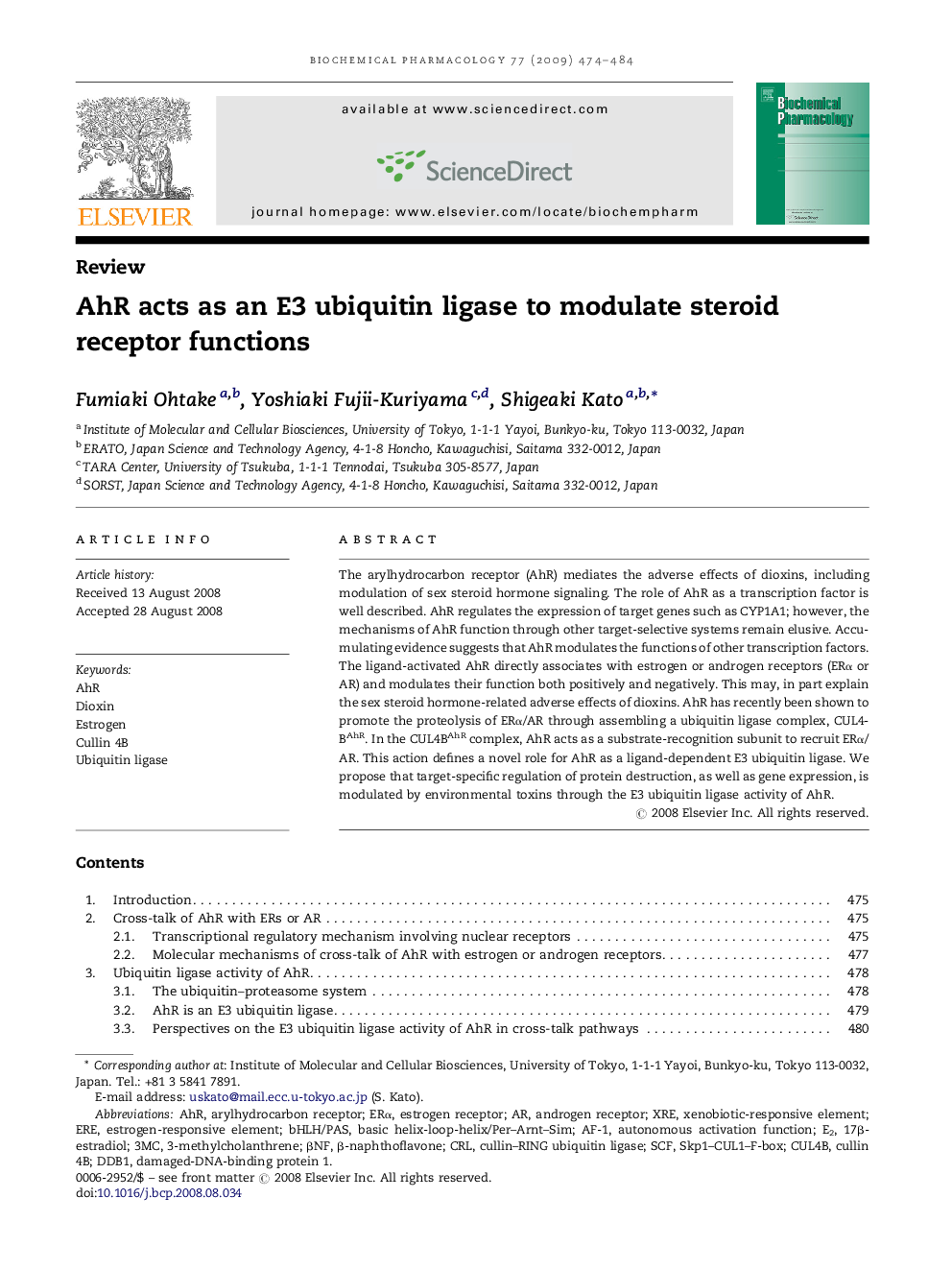| Article ID | Journal | Published Year | Pages | File Type |
|---|---|---|---|---|
| 2514475 | Biochemical Pharmacology | 2009 | 11 Pages |
The arylhydrocarbon receptor (AhR) mediates the adverse effects of dioxins, including modulation of sex steroid hormone signaling. The role of AhR as a transcription factor is well described. AhR regulates the expression of target genes such as CYP1A1; however, the mechanisms of AhR function through other target-selective systems remain elusive. Accumulating evidence suggests that AhR modulates the functions of other transcription factors. The ligand-activated AhR directly associates with estrogen or androgen receptors (ERα or AR) and modulates their function both positively and negatively. This may, in part explain the sex steroid hormone-related adverse effects of dioxins. AhR has recently been shown to promote the proteolysis of ERα/AR through assembling a ubiquitin ligase complex, CUL4BAhR. In the CUL4BAhR complex, AhR acts as a substrate-recognition subunit to recruit ERα/AR. This action defines a novel role for AhR as a ligand-dependent E3 ubiquitin ligase. We propose that target-specific regulation of protein destruction, as well as gene expression, is modulated by environmental toxins through the E3 ubiquitin ligase activity of AhR.
